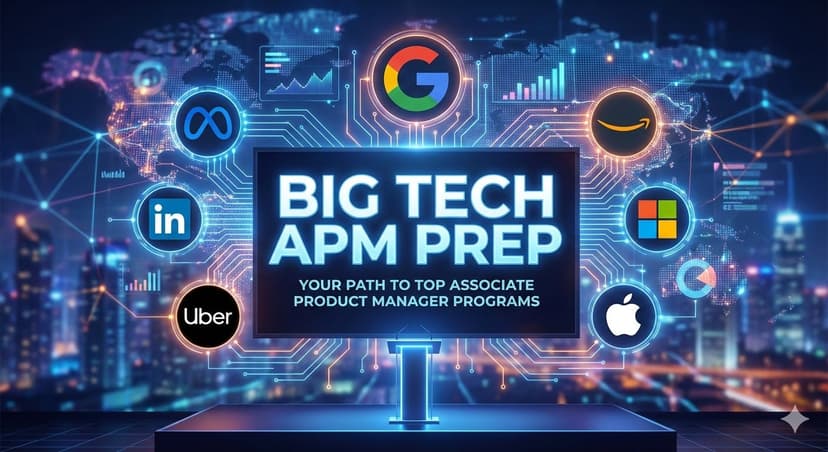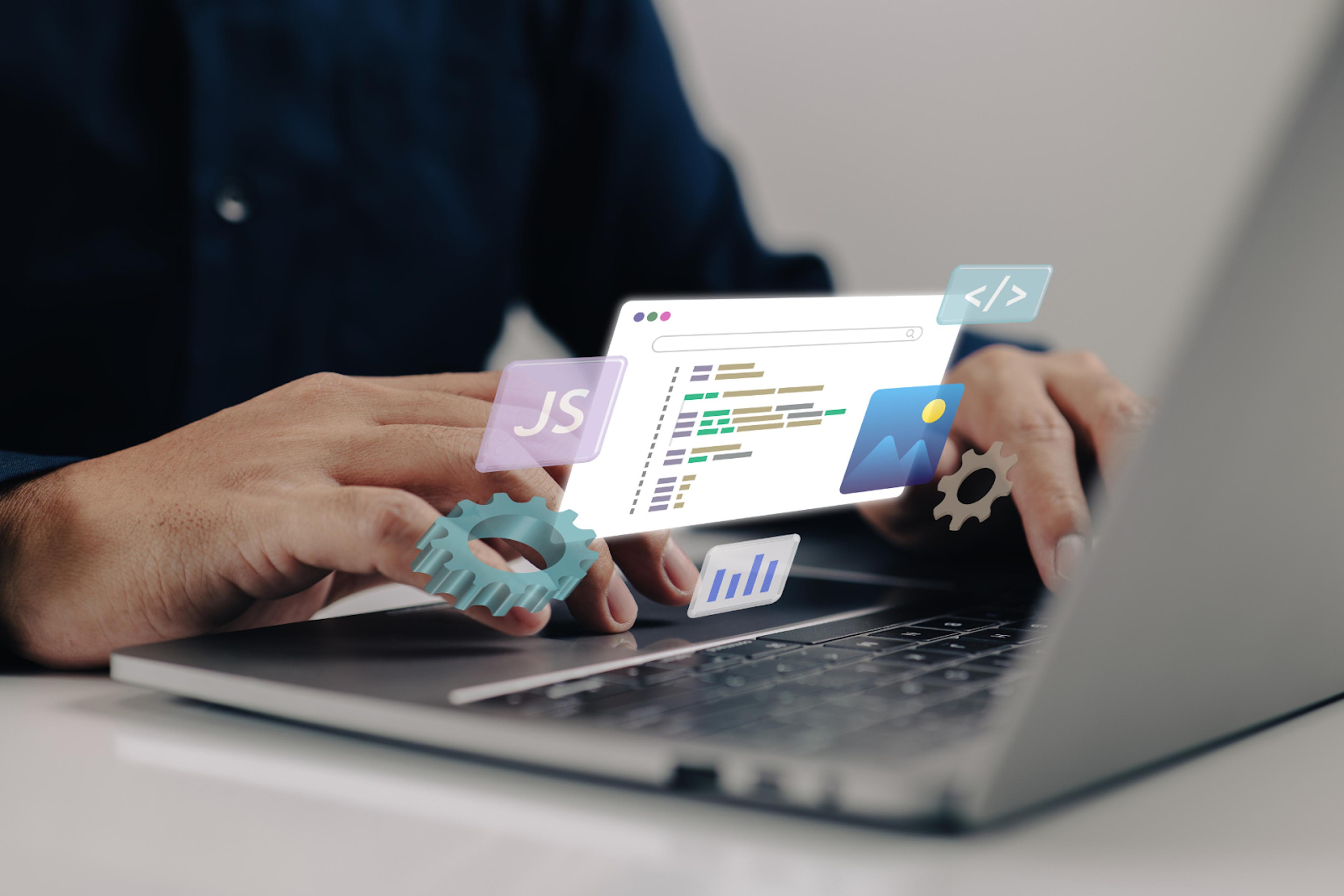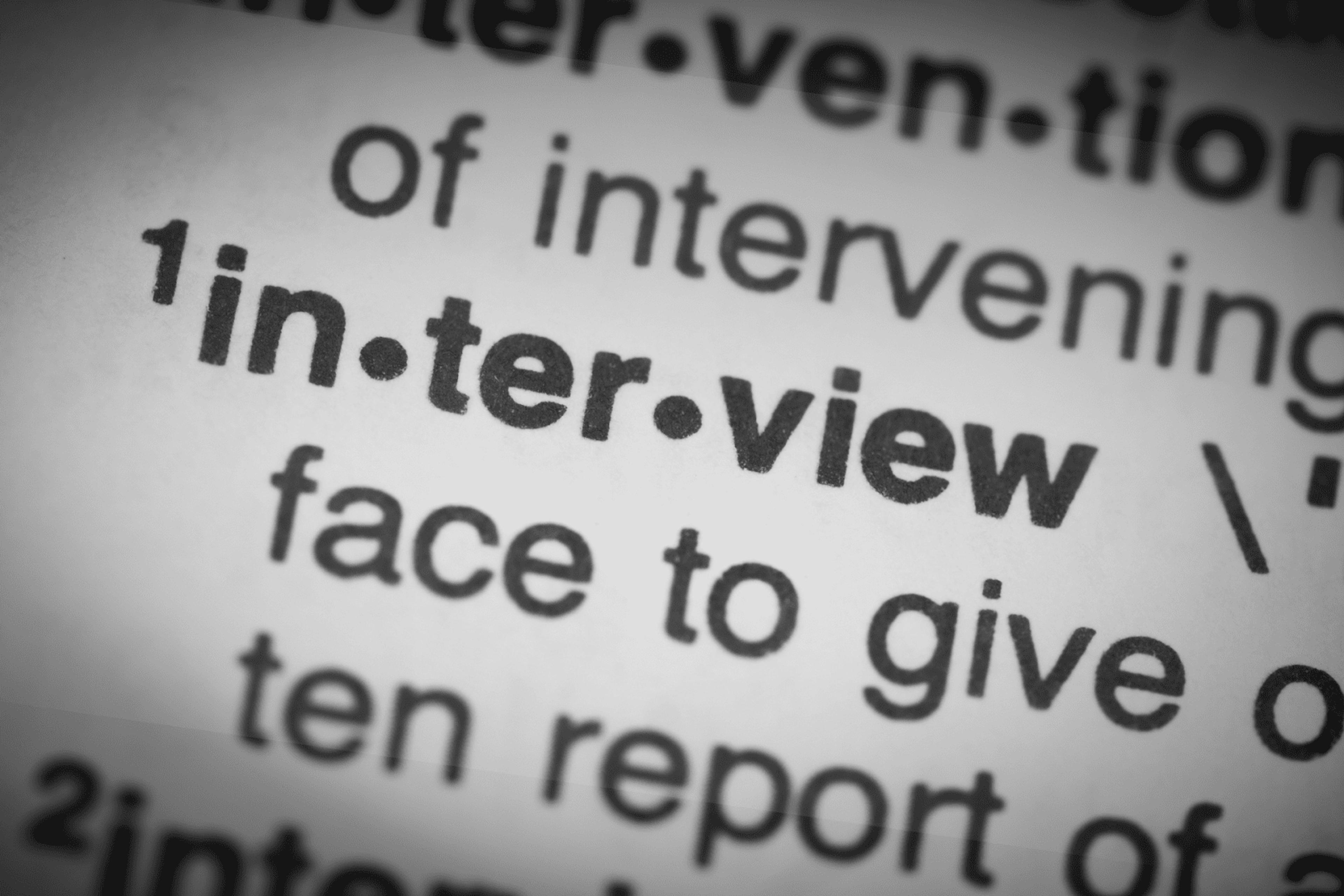Technical Product Manager (TPM): Interview Process & Questions
Ace your TPM interview with our expert guide on preparation, common questions, and tips. Get ready to impress and land the job with confidence!
Posted October 25, 2025

Join a free event
Learn from top coaches and industry experts in live, interactive sessions you can join for free.
Table of Contents
Becoming a Technical Product Manager (TPM) requires a combination of technical expertise, project management skills, and the ability to lead cross-functional teams. They are responsible for aligning business objectives with engineering teams, managing complex technical projects, and ensuring project success. TPM interview preparation is crucial for securing a role in this competitive field.
In this article, we’ll break down the interview process, key skills and competencies, common interview questions, and tips to help you succeed in this field.
Read: How to Get Into Product Management
Understanding the TPM Interview Process
A Technical Product Manager (TPM) bridges the gap between technical teams and non-technical stakeholders. They guide the product through its lifecycle, ensuring it meets both technical requirements and business goals. They also need a solid understanding of engineering principles, as they collaborate closely with developers to solve complex technical issues, while also ensuring the product delivers value to users. A TPM combines technical expertise with product management skills to create products that are both technically sound and aligned with business goals.
That's why their interview consists of several stages, each designed to evaluate different aspects of your skills and experience. Being prepared for these stages can help you navigate them with confidence.
Stages of the Interview
Initial Screening
The first step usually involves a recruiter or HR representative. This stage focuses on assessing whether your background fits the basic job requirements, such as experience with technical program management, working with various teams, and a strong understanding of software development. Be ready, as you’ll likely be asked about your program management skills and technical knowledge at a high level.
Technical Interview
This interview tests your technical acumen and problem-solving abilities. You may be asked to solve complex technical questions, discuss system design, or explain how you would handle a technical program. The purpose of this interview is to assess your technical expertise as well as how well you communicate technical details to others.
Behavioral Interviews
This type of question usually focuses on your past experiences and how you've handled challenges in the workplace. They’re designed to give interviewers insight into your approach to problem-solving, teamwork, and leadership. When you’re asked these types of questions, it’s important to reflect on real situations where you've had to manage complex tasks or navigate difficult situations. The key is to explain not just what happened, but how you responded, what decisions you made, and the results of those actions. This is your chance to showcase your ability to lead, collaborate with others, and manage conflicting priorities.
Note: Always remember, interviewers want to hear about your thought process and how you handle challenges, so focus on showing your strengths in those areas.
Final Interview/Onsite
The final step typically involves interviews with multiple teams, including both technical and non-technical stakeholders. You may be asked to solve program management questions or participate in a mock scenario where you demonstrate how you would handle a complex technical project. During this stage, you'll be evaluated on your ability to manage risks, prioritize tasks, and lead teams to meet project goals.
Key Skills and Competencies for TPM Interviews
To succeed in your interview, you need a solid understanding of the important skills that will be evaluated. Let’s break them down.
Technical Knowledge and Expertise
Technical Acumen
You must have deep knowledge of system design, technical solutions, and software development processes. You’ll be expected to explain technical details clearly and effectively. During your interviews, interviewers might ask you to design a system and discuss how it would work across multiple engineering teams.
Agile Project Management
Many TPMs work in agile project management environments. Be prepared to discuss how you’ve used agile methods to manage technical programs, meet deadlines, and adapt to changing requirements. Emphasize your experience in iterative planning, prioritizing tasks, and ensuring project success.
Problem-Solving and Risk Management
TPMs must excel in problem-solving, especially when it comes to managing complex technical projects. You may be asked how you identify potential risks in a project and what steps you take to mitigate them. Be ready to discuss problem-solving skills and your approach to managing critical tasks under pressure.
Collaboration and Stakeholder Management
Leading Cross-Functional Teams
As a TPM, you’ll work with multiple teams, including engineering teams, business stakeholders, and non-technical teams. Expect questions about how you’ve managed cross-functional teams in the past. For instance, you might be asked to explain a situation where you led a technical program involving diverse groups and conflicting priorities.
Managing Stakeholders
One of the key roles of a TPM is to manage relationships with stakeholders, ensuring that technical requirements align with business objectives. During the interview, you’ll likely face questions about how you manage stakeholder expectations, especially when dealing with limited resources or tight timelines.
Communication Skills
A strong communication ability is essential for a TPM. You must be able to explain complex technical concepts to non-technical stakeholders. Be prepared to discuss how you’ve successfully communicated technical solutions and updates across different teams.
Project Management Skills
Prioritizing Tasks
You must be able to prioritize tasks effectively and ensure that critical project tasks are completed on time and within budget. During the interview, you may be asked to discuss how you handle competing priorities or how you manage multiple teams working on different aspects of the same project.
Decision-Making Process
The ability to make sound decisions, particularly in high-pressure situations, is vital for a TPM. Be prepared to explain your decision-making process and provide examples of how you’ve made decisions that led to successful technical programs.
Read: 10 Job-Ready Career Skills That Will Set You Apart
Common TPM Interview Questions
The following are common questions you may encounter in a TPM interview.
| Interview Type | Sample Question | Sample Answer |
|---|---|---|
| General Technical | How would you design an architecture for X product? | To design the architecture for X product, I will first assess the product requirements and identify key components like databases, APIs, and user interfaces. Then, I will create a scalable, modular design ensuring fault tolerance and security. I will also prioritize performance optimization and ensure the system can handle increased load. Finally, I will conduct load testing and monitor performance metrics post-launch. |
| Behavioral Questions | Tell me about a time when you led a cross-functional team under limited resources. | In my previous role, I led a team across engineering, marketing, and sales to deliver a product under a tight deadline with limited resources. We focused on clear communication and prioritized tasks based on their impact. We successfully delivered the product on time by staying focused on our project goals and keeping the team motivated. That led us to a successful product launch. |
| Problem-Solving | Tell me about a time when you solved a difficult problem in a technical program. | In one project, we faced a major system integration issue that threatened our timeline. I identified the bottleneck and coordinated with the engineering and QA teams to implement a patch. We then conducted thorough testing and delivered the solution on time, preventing delays and ensuring the project stayed on track. |
| Technical Interview | Can you walk us through how you managed a complex technical project? | Managing a complex technical project is not an easy task. First, I need to define the project scope, objectives, and technical requirements. After that, I will create a project plan using agile methodologies, breaking down tasks into sprints. I will then coordinate with the teams to ensure our continuously tracked progress, mitigated risks, and adjusted timelines as necessary. I can say that regular check-ins and transparent communication are really important to keeping everyone aligned and ensuring we stay on track toward our goals. |
| Final Interview/Onsite | How would you handle a scenario where a project is falling behind schedule? | If a project is falling behind schedule, I will first analyze the reasons for the delay. Then, I will communicate transparently with all stakeholders to reset expectations, reallocate resources if needed, and adjust the timeline. Afterward, I will prioritize critical tasks and implement mitigations to keep the project on track. |
Read:
- The 10 Most Common Product Management (PM) Behavioral Interview Questions
- Top 10 Interview Coaches
- Product Manager Case Study Interviews: What to Expect, Questions, & Examples
- The 50 Most Common Product Manager Interview Questions (With Sample Answers)
Preparing for the TPM Interview
Mock Interviews and Technical Explanations
One of the best ways to prepare for your TPM interview is by practicing with mock interviews. Focus on technical explanation questions where you break down complex systems and technical details. Practicing these explanations will help you communicate your thoughts more clearly during the actual interview.
Behavioral Interview Preparation
Use the STAR Method to answer behavioral questions. Focus on explaining the situation, the task you were assigned, the action you took, and the result of your efforts. This structure ensures that you provide clear, concise answers that demonstrate your experience in handling real-world challenges.
Preparing for Cross-Functional Discussions
TPMs frequently interact with both technical teams and non-technical stakeholders. Be ready to explain how you’ve successfully balanced these relationships and prioritized tasks across different groups. Consider how you’ve led discussions between engineering teams and business stakeholders to align technical requirements with business objectives.
Read: How to Run the Best Product Manager Mock Interview
The Bottom Line
On your interview, focus on showing how well you blend technical knowledge with strong leadership and communication skills. You’ll need to demonstrate your ability to manage complex technical projects, including program management and project success, while leading cross-functional teams. Be prepared to showcase your skills and how you handle system design and manage risks in challenging situations. Additionally, you’ll need to prioritize tasks effectively to meet deadlines and ensure smooth project execution.
The interview will test you on these areas, so be ready for questions about your past experiences, approach to handling challenges, and how you communicate technical details. Practicing with mock interviews, using the STAR method for behavioral questions, and preparing for both technical and non-technical discussions will help you shine in your interview.
Ready To Ace Your TPM Interview?
Reach out to Leland’s expert team for personalized guidance on interview preparation and professional growth. Start preparing today and secure your future as a successful technical product manager!
Visit: The Top 10 Product Management Consultants & Coaching Services
Read next:
- How to Land a Product Management Internship in 2025
- How to Write a Powerful Product Management Cover Letter
- The 20 Most Important Product Manager Skills
- The Best Newsletters & Podcasts for Product Management
- The Different Types of Product Management: An Overview of Specialist PM Jobs
FAQs
What are TPM interviews like?
- TPM interviews typically involve technical, behavioral, and problem-solving questions, assessing your ability to manage complex projects, lead teams, and solve technical issues while ensuring project success.
What is the biggest red flag to hear when being interviewed?
- A major red flag is hearing vague answers about past projects or a lack of responsibility, which may suggest a lack of experience or accountability.
What are the 3 P's of interviewing?
- The 3 P’s of interviewing are Preparation, Presentation, and Practice. They help you be ready, confident, and articulate during the interview process.
How to prepare for a technical project manager interview?
- Prepare by reviewing your technical and project management experience, practicing behavioral questions with the STAR method, and studying key topics like system design and problem-solving.
What questions are asked in a technical interview?
- Technical interviews often include system design questions, coding challenges, problem-solving scenarios, and questions on technical knowledge relevant to the role.
What is a TPM interview?
- A TPM interview is an interview for a Technical Product Manager role, where candidates are assessed on their technical expertise, project management skills, leadership, and problem-solving abilities.
Browse hundreds of expert coaches
Leland coaches have helped thousands of people achieve their goals. A dedicated mentor can make all the difference.



























